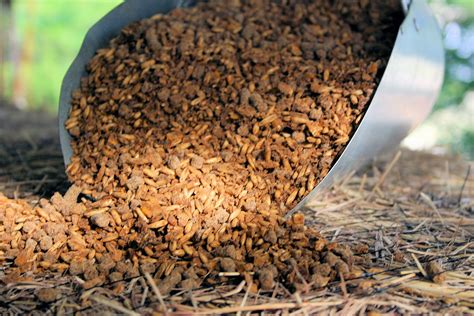Beet Pulp for Weight Gain: A Step-by-Step Guide
Beet pulp, a byproduct of sugar beet processing, is increasingly recognized for its potential health benefits, including its role in supporting weight gain. While not a miracle weight-gainer, beet pulp offers a nutritious and easily digestible source of calories, fiber, and essential nutrients that can contribute to a healthy weight increase. This guide provides a step-by-step approach to incorporating beet pulp into your diet for weight gain.
What is Beet Pulp?
Beet pulp is the fibrous residue left after sugar is extracted from sugar beets. It's a concentrated source of nutrients, including fiber, protein, and various vitamins and minerals. Unlike the refined sugar extracted from the beet, the pulp retains much of the plant's nutritional value. This makes it a valuable addition to diets aimed at healthy weight gain.
Beet Pulp's Nutritional Profile and Benefits for Weight Gain
Beet pulp is surprisingly rich in calories compared to many other fiber sources. This caloric density, coupled with its slow-digesting nature, helps provide sustained energy and promotes satiety, making it ideal for those looking to increase their caloric intake without feeling overly full. The high fiber content aids digestion and helps regulate blood sugar levels, preventing energy crashes that can hinder weight gain efforts.
Furthermore, beet pulp is a good source of:
- Fiber: Promotes digestive health and feelings of fullness.
- Protein: Essential for building and repairing tissues.
- Vitamins: Including B vitamins and vitamin C.
- Minerals: Such as potassium, magnesium, and iron.
How to Incorporate Beet Pulp into Your Diet for Weight Gain
Step 1: Choosing the Right Beet Pulp:
You'll find beet pulp in two main forms: dried and pelleted. Dried beet pulp is typically sold in bulk or bags, while pelleted beet pulp is often used in animal feed. For human consumption, dried beet pulp is preferred for its flexibility in usage. Ensure the beet pulp is intended for human consumption and is free from any additives or contaminants.
Step 2: Preparing Beet Pulp:
Dried beet pulp requires rehydration before consumption. The recommended approach is to add the pulp to liquids (water, juice, smoothies) and allow it to soak for at least 30 minutes, or up to several hours, to soften the fibers. This process also allows the beet pulp to absorb the liquid, making it easier to consume and incorporate into recipes.
Step 3: Incorporating Beet Pulp into Meals and Snacks:
Beet pulp's mild flavor makes it versatile. It can be added to:
- Smoothies: Blend it with fruits, vegetables, and yogurt for a nutrient-rich weight-gain shake.
- Baked goods: Add it to muffins, cookies, or bread for extra fiber and nutrients. It will slightly alter the texture, adding a bit of denseness.
- Oatmeal or porridge: Mix it into your morning oatmeal for a fiber boost.
- Yogurt or pudding: Add it to your yogurt for a thicker, more filling snack.
- Soups and stews: Stir it into soups and stews for added nutrients and texture.
Step 4: Monitoring Your Caloric Intake and Progress:
Track your daily caloric intake to ensure you are consuming enough calories to support weight gain. Remember that beet pulp is a supplement and should be part of a balanced diet that includes a variety of nutrient-rich foods. Monitor your weight and adjust your intake as needed. Consult a healthcare professional or registered dietitian for personalized guidance.
Frequently Asked Questions (FAQs)
Does beet pulp cause weight gain?
Beet pulp itself doesn't directly cause weight gain. It contributes to weight gain by increasing your overall caloric intake and providing essential nutrients that support healthy weight management. It's a tool to help you achieve your weight gain goals, not a guaranteed solution.
How much beet pulp should I consume daily for weight gain?
There's no single answer to this question. The appropriate amount depends on your individual caloric needs and overall diet. Start with small amounts (1-2 tablespoons daily) and gradually increase the intake based on tolerance and your body's response.
Can I eat beet pulp raw?
While technically edible raw, raw beet pulp is extremely fibrous and difficult to digest. It is strongly recommended to rehydrate it before consumption to improve digestibility and avoid potential digestive discomfort.
Are there any side effects of consuming beet pulp?
Excessive consumption of beet pulp may lead to digestive issues such as gas and bloating, especially initially. Start with small amounts and gradually increase your intake to allow your body to adjust.
Is beet pulp suitable for everyone?
While generally safe, individuals with specific dietary restrictions or health conditions (such as bowel obstructions) should consult their doctor before incorporating beet pulp into their diet.
By following this step-by-step guide and making informed choices, you can effectively incorporate beet pulp into your diet as a nutritious and helpful tool to achieve your weight gain goals. Remember that a balanced diet and regular exercise remain crucial for overall health and well-being.

